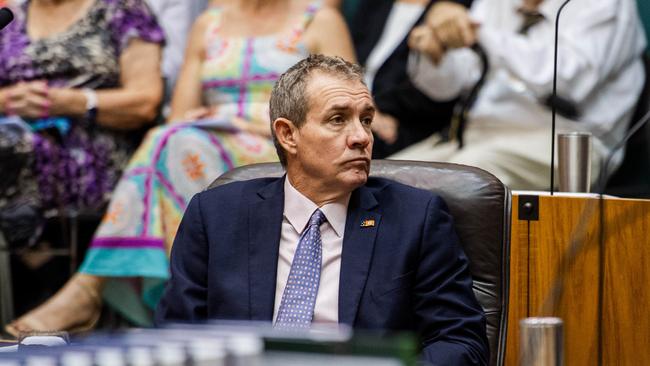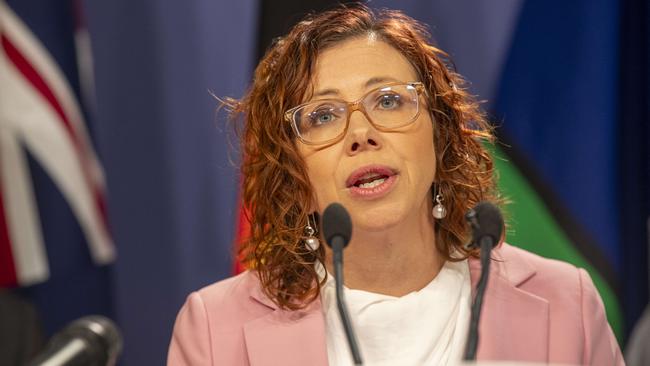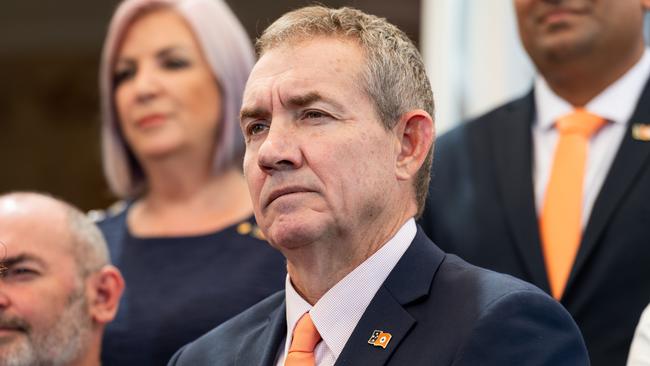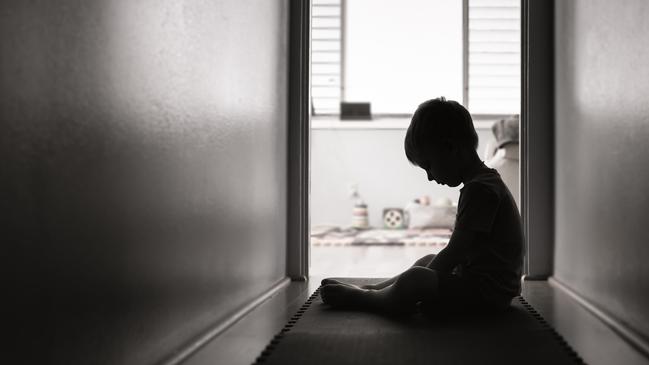NT acting Attorney-General agrees to join other states in closing National Redress Scheme loophole for child abuse victims
The Territory has committed to join the rest of Australia in supporting closing a legal loophole for victims of institutional child abuse. Here’s what it means.

Politics
Don't miss out on the headlines from Politics. Followed categories will be added to My News.
The Territory has committed to sign on to a national agreement to support victims of child abuse, after survivors risked being trapped in a legal loophole over compensation.
On Tuesday, federal Social Services Minister Amanda Rishworth met virtually with all State and Territory leaders to discuss reforms to the National Redress Scheme, which was established in 2018 following the Royal Commission into Institutional Responses to Child Sexual Abuse.
The scheme allows Australians who were exposed to exposed horrific crimes in orphanages, children’s homes, schools, churches and other religious organisations, sports clubs, hospitals, foster care and other places of care to access up to $150,000 in compensation.
However for survivors to access the money, the organisation has to have signed up to the scheme.
The State and Territory governments were asked to step in to fund compensation payments for victims whose organisations refuse to sign up to the scheme.
In the Tuesday meeting with between all leaders and Ms Rishworth, it is understood the Northern Territory was the only jurisdiction to not support the move.
The NT did not indicate a position at the meeting.
But in order for the agreement to be confirmed, every jurisdiction had to come on board.

However, on Thursday acting Attorney-General Gerard Maley said the government would now “take the necessary steps to formally support it”.
“The NT will not stand in the way of this important issue,” Mr Maley said.
Opposition Leader Selena Uibo said it was “deeply disappointing” that the government initially did not full commit to child abuse compensation reforms.
“The Chief Minister has only done the right thing by Territory survivors of institutional child sexual abuse after she was caught out trying to deny them support and compensation,” Ms Uibo said.
“Every single government in Australia signed up to the National Redress Scheme, including the former Territory Labor Government.
“The CLP had no excuse for trying to reneg on this arrangement.”
The National Redress Scheme (NRS) website has reported that 1631 Territory institutions have signed onto the redress scheme, with only two local groups not yet part of the national child abuse compensation plan.

According to the NRS website, the Darwin Cycling Club declined to join while Kentish Lifelong Learning and Care Inc said it was “intending to participate”.
National bodies including the Australian Rugby League Commission, The Disciples of Jesus Covenant Community International Incorporated, and Grow have also said they were working with the scheme, but have not yet completed the steps to join.
A parliamentary inquiry into the NRS which was tabled this week flagged that a backlog of applications has slowed down the child abuse compensation scheme, with survivors now waiting an average of 15 months in 2023–24.
It revealed there were 428 people who had applied for compensation from the Northern Territory, with experts telling the inquiry that Territorians faced additional barriers in having their payments finalised.

Relationships Australia NT (RANT) told the inquiry that their clients were becoming suicidal due to the poor processes in the compensation scheme.
In their submission RANT said one woman felt “disgusting, not believed and humiliated by the scheme”, while another said she felt as “powerless and invisible” as she was when she was abused at 16.
One remote Territorian, who suffered from a disability, said the burden of applying to the scheme – including a 12-hour round trip to the nearest Centrelink – made him wish he never applied.
“No amount of money would be adequate to cover these impacts (of the NRS),” he told RANT.
Meanwhile, another Territorian who suffered “extreme” child abuse had their payment offer reduced to nothing, after receiving a payment from a different class action — despite other survivors having no financial impact on their NRS offers.
The commonwealth is still considering the 29 recommendations from the report.





